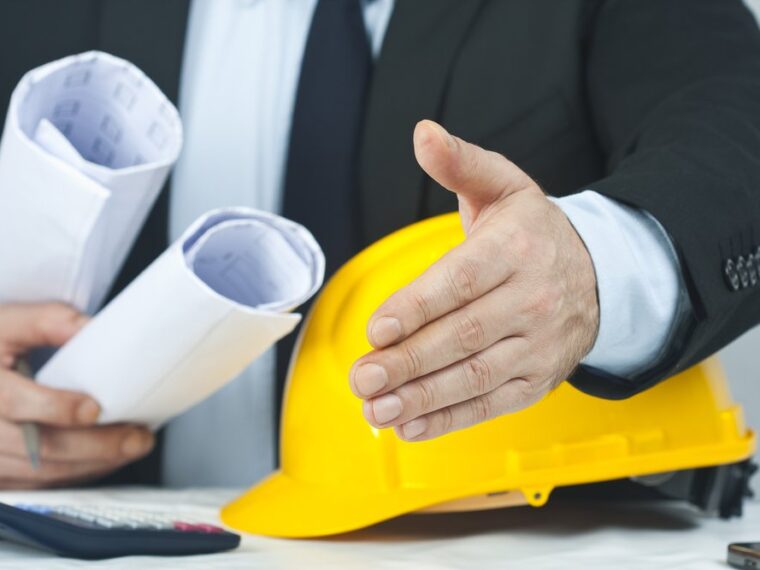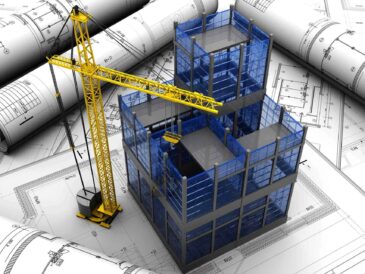Entering into a building or construction contract is a significant step for any individual or organisation. The complexities involved can often lead to misunderstandings or disputes if not handled correctly. Engaging a qualified building and construction lawyer is essential to ensure that your interests are protected. Before signing any contract, it is crucial to ask the right questions to clarify your understanding and mitigate potential risks. This article outlines the top questions to consider when consulting with your building and construction lawyer.
Understanding the Contract
What are the key components of this contract?
Before signing, it is vital to understand the fundamental elements of the contract. Key components typically include the scope of work, timelines, payment schedules, and any penalties for non-compliance. A thorough explanation from your lawyer can help you grasp what you are committing to and the implications of each section.
Additionally, understanding the definitions of terms used within the contract is crucial. Legal jargon can often be confusing, and your lawyer should clarify any ambiguous language to ensure you are fully informed. It is also beneficial to review any appendices or supplementary documents attached to the contract, as these often contain important details that can affect the overall agreement. For instance, specifications regarding materials, quality standards, and project milestones can significantly influence the execution of the contract. Ensuring clarity on these aspects can prevent misunderstandings and disputes later on.
Are there any potential risks associated with this contract?
Every contract carries inherent risks. Your lawyer should help identify these risks, which could range from financial implications to legal liabilities. Understanding these risks allows you to make informed decisions and consider whether additional clauses or amendments are necessary to protect your interests.
Moreover, discussing potential risks can also lead to strategies for risk mitigation. Your lawyer may suggest insurance options or alternative clauses that can provide additional security. It is also wise to consider the potential for changes in circumstances that could affect the contract’s execution, such as economic fluctuations or shifts in regulatory requirements. By anticipating these scenarios, you can negotiate terms that allow for flexibility, such as renegotiation clauses or provisions for unforeseen events. This proactive approach not only safeguards your interests but also fosters a more collaborative relationship with the other party involved.
Compliance and Regulations
Does this contract comply with local laws and regulations?
Building and construction law projects are subject to a myriad of local laws and regulations. It is essential to ensure that your contract adheres to these legal requirements. Your lawyer should verify that all necessary permits and approvals are in place and that the contract aligns with local building codes.
Failure to comply with regulations can lead to costly delays and legal complications. A knowledgeable lawyer will be able to guide you through the legal landscape and ensure that your project is on solid ground. Moreover, understanding the specific zoning laws applicable to your project is vital. Zoning laws dictate how land can be used and can vary significantly from one locality to another. For instance, certain areas may be designated for residential use only, while others might allow for commercial developments. Ensuring that your project is in compliance with these zoning regulations can prevent future disputes and facilitate a smoother construction process.
What are the consequences of non-compliance?
Understanding the repercussions of non-compliance is crucial. Your lawyer should explain the potential penalties, which can include fines, project delays, or even the halting of construction. Knowing these consequences in advance helps you weigh the risks and make informed decisions.
Additionally, your lawyer can advise on how to rectify any compliance issues should they arise during the project. This proactive approach can save time and resources in the long run. It is also worth noting that non-compliance can tarnish your reputation within the industry. Clients and stakeholders may become wary of engaging with a company that has a history of regulatory issues, which can lead to a loss of future business opportunities. Therefore, maintaining compliance not only safeguards your current project but also fortifies your standing in the market, ensuring that you remain a trusted entity in the construction sector.
Financial Considerations
What is the total estimated cost of the project?
One of the most critical aspects of any building contract is the financial commitment involved. It is essential to have a clear understanding of the total estimated cost, including any potential overruns. Your lawyer should review the payment schedule and clarify what is included in the total cost.
Moreover, discussing payment terms, including deposits, progress payments, and final payments, can help prevent disputes later on. A transparent financial structure is key to a successful project.
Are there any hidden costs I should be aware of?
Hidden costs can often catch individuals off guard. Your lawyer should help identify any additional expenses that may not be immediately apparent, such as costs for permits, inspections, or unforeseen site conditions. Understanding these potential costs upfront can aid in budgeting and financial planning.
Furthermore, it is wise to discuss how changes to the project scope may impact costs. Having a clear understanding of how variations will be handled can prevent disputes and ensure that all parties are on the same page.
Dispute Resolution
What are the dispute resolution mechanisms in place?
Disputes can arise in any construction project, making it essential to have a clear dispute resolution process outlined in the contract. Your lawyer should explain the mechanisms available, such as mediation, arbitration, or litigation, and advise on which may be most appropriate for your situation.
Having a well-defined dispute resolution process can save time and money in the event of a disagreement. It also provides a framework for resolving conflicts amicably, which is often preferable to lengthy legal battles.
What happens if a dispute arises?
Understanding the steps to take if a dispute arises is crucial. Your lawyer should outline the procedures that will be followed, including any timeframes for notification and resolution. Knowing what to expect can reduce stress and confusion should a conflict occur.
Additionally, discussing the potential costs associated with dispute resolution can help you prepare financially for any challenges that may arise during the project.

Contract Termination
What are the grounds for terminating the contract?
Contracts should clearly outline the conditions under which either party can terminate the agreement. Your lawyer should explain these grounds and ensure that they are reasonable and fair. Understanding the termination clauses can provide peace of mind and clarity should the need to terminate arise. Click here to learn about what is building and construction law? essential facts for every property owner.
Moreover, discussing the implications of termination, including financial penalties or obligations, is essential. This knowledge can help you navigate any potential issues with greater ease.
What are the procedures for contract termination?
In the event of termination, it is crucial to understand the procedures that must be followed. Your lawyer should provide guidance on how to properly terminate the contract, including any necessary documentation or notifications that must be issued.
Following the correct procedures is essential to avoid legal repercussions and ensure a smooth transition, whether you are ending the contract amicably or due to a breach.
Project Timeline
What is the expected timeline for the project?
Having a clear understanding of the project timeline is essential for effective planning and coordination. Your lawyer should review the contract to ensure that it includes a realistic timeline for completion, including milestones and deadlines.
Moreover, discussing potential delays and how they will be managed can help set expectations. Knowing how delays will be handled can provide reassurance and clarity throughout the project.
What are the consequences of delays?
Delays can have significant implications for both parties involved in a construction project. Your lawyer should explain the consequences of delays as outlined in the contract, including any penalties or damages that may be incurred.
Understanding these consequences can help you navigate challenges more effectively and ensure that all parties are held accountable for their obligations.
Insurance and Liability
What type of insurance is required for this project?
Insurance is a vital aspect of any construction project, providing protection against various risks. Your lawyer should clarify the types of insurance required, such as public liability, workers’ compensation, and builder’s risk insurance. Understanding these requirements is crucial for compliance and risk management.
Additionally, discussing the coverage limits and any exclusions in the insurance policies can help ensure that you are adequately protected throughout the project.
Who is liable for damages or accidents?
Liability in construction projects can be complex. Your lawyer should explain who is responsible for damages or accidents that may occur during the project. Understanding liability can help you assess your risks and ensure that appropriate measures are in place to protect your interests.
Moreover, discussing indemnity clauses and how they affect liability can provide further clarity and peace of mind.
Final Considerations
Can you provide references or case studies?
When engaging a building and construction lawyer, it is wise to ask for references or case studies from previous clients. This can provide insight into their experience and expertise in handling similar projects. A reputable lawyer should be able to share examples of their work and the outcomes achieved for their clients.
References can also help establish trust and confidence in your lawyer’s abilities, ensuring that you are making an informed choice.
What are your fees and payment structures?
Understanding the lawyer’s fees and payment structures is crucial for budgeting purposes. Your lawyer should provide a clear breakdown of their fees, including hourly rates, retainer fees, and any additional costs that may arise during the project.
Discussing payment structures upfront can help avoid misunderstandings later on and ensure that both parties are aligned on financial expectations.

Conclusion
Engaging a building and construction lawyer is a critical step in ensuring the success of your project. By asking the right questions before signing a contract, you can gain valuable insights and protect your interests. Understanding the contract, compliance requirements, financial implications, dispute resolution processes, and liability issues are all essential components of a successful construction project.
Taking the time to consult with a qualified lawyer and addressing these questions will provide peace of mind and set the foundation for a smooth and successful building experience. Remember, a well-informed client is an empowered client, and being proactive in your approach can save time, money, and stress in the long run.


